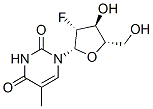On the other hand, development of clinically useful antifungal antibodies may profit from the on-going outstanding advances in recombinant DNA technologies and protein engineering. Remarkable progress has been made recently in the discovery of fungal antigens that confer antibody-mediated protection. There are several examples of experimental subunit vaccines that are able to prevent some of the most widespread fungal infections through the induction of protective antibodies. Some of these appear particularly promising. The feasibility of conferring passive protection through administration of protective antibodies, with or without antimycotic therapy, is also being investigated actively. A number of monoclonal or recombinant antifungal antibodies are available, which have proven to be protective in preclinical or clinical models of passive vaccination against some fungal infections. It is of Folinic acid calcium salt pentahydrate particular interest that several protective antifungal antibodies appear  to provide protection by blocking virulence factors or by directly affecting fungus growth. This mode of action, which is independent of help by the host immunity, would be particularly advantageous in the setting of the immunocompromized hosts, who are at major risk of severe fungal infections. Presently, researchers in the field are optimistic that antifungal vaccines and antibodies of clinical usefulness will be soon generated. For success, however, it is necessary to identify precisely antibodies and antigens that can generate a protective immunity and to elucidate the mechanisms of immune protection, also in consideration of the large variability of protective value among antifungal antibodies with similar or even equal antigen specificity. Among the most recently described subunit vaccines and antifungal antibodies, those targeting major polysaccharides or polysaccharide-associated proteins of the fungal cell wall have been shown to exert protection in various experimental models of fungal infection, both in normal and in immunocompromized animals. In particular, a number of mannan or b-glucan protein conjugates vaccines have shown efficacy in experimental models of candidiasis, aspergillosis and cryptococcosis, the three most prevalent fungal infections of humans. One of these candidate vaccines, composed by Albaspidin-AA laminarin conjugated with the genetically-inactivated diphtheria toxin CRM197 has been found to induce the production.
to provide protection by blocking virulence factors or by directly affecting fungus growth. This mode of action, which is independent of help by the host immunity, would be particularly advantageous in the setting of the immunocompromized hosts, who are at major risk of severe fungal infections. Presently, researchers in the field are optimistic that antifungal vaccines and antibodies of clinical usefulness will be soon generated. For success, however, it is necessary to identify precisely antibodies and antigens that can generate a protective immunity and to elucidate the mechanisms of immune protection, also in consideration of the large variability of protective value among antifungal antibodies with similar or even equal antigen specificity. Among the most recently described subunit vaccines and antifungal antibodies, those targeting major polysaccharides or polysaccharide-associated proteins of the fungal cell wall have been shown to exert protection in various experimental models of fungal infection, both in normal and in immunocompromized animals. In particular, a number of mannan or b-glucan protein conjugates vaccines have shown efficacy in experimental models of candidiasis, aspergillosis and cryptococcosis, the three most prevalent fungal infections of humans. One of these candidate vaccines, composed by Albaspidin-AA laminarin conjugated with the genetically-inactivated diphtheria toxin CRM197 has been found to induce the production.